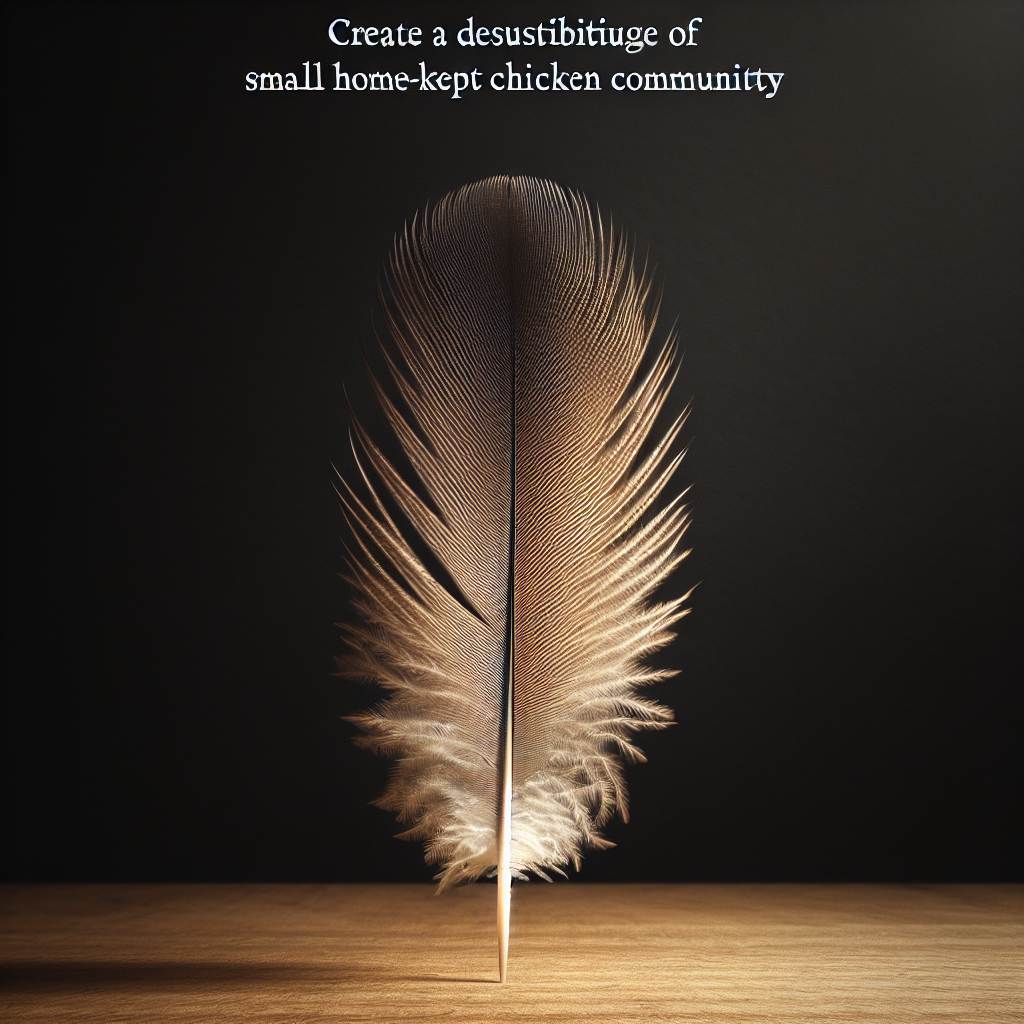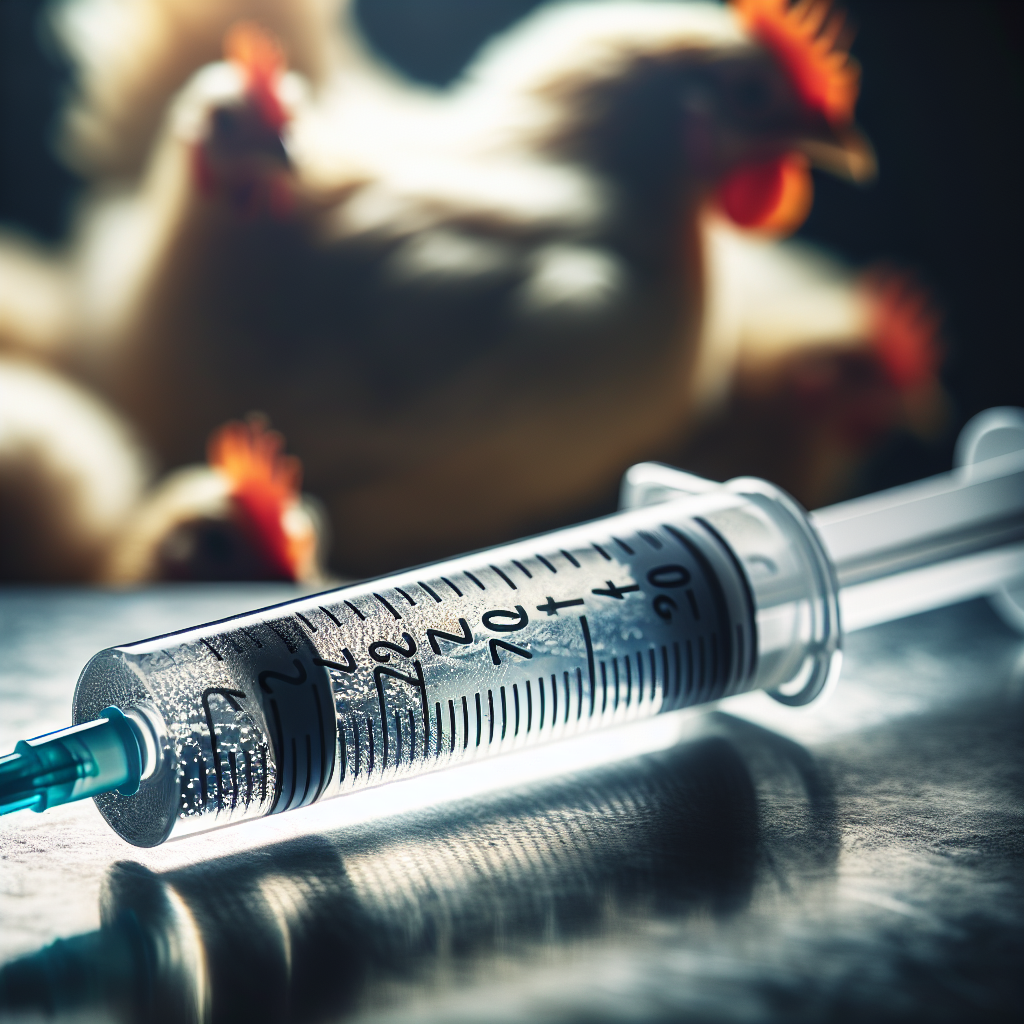Imagine the thrill of waking up to the gentle clucking of your very own backyard flock. From the colorful array of feathers to the fresh eggs laid each morning, it’s a rewarding experience. However, have you ever wondered about the potential risks and implications that come with owning chickens, particularly when it comes to Newcastle disease? In this article, we will explore the implications of Newcastle disease in backyard flocks, shedding light on the importance of understanding this disease and taking necessary precautions to safeguard the health and wellbeing of your beloved feathery friends.
Overview
What is Newcastle disease?
Newcastle disease, also known as avian pneumoencephalitis, is a highly contagious viral disease that affects domestic and wild birds. It is caused by the Newcastle disease virus (NDV), which belongs to the family Paramyxoviridae. Newcastle disease affects various bird species, including chickens, turkeys, pigeons, and parrots. It can cause respiratory, digestive, and nervous system issues, and in severe cases, it can lead to high mortality rates in affected flocks.
How is it spread?
Newcastle disease can be spread through direct contact with infected birds, their droppings, and respiratory secretions. It can also be transmitted through contaminated feed, water, equipment, and clothing. Additionally, wild birds and other animals can carry and spread the virus. The disease can quickly spread within and between flocks through bird-to-bird contact and aerosol transmission.
What are the symptoms in backyard flocks?
The symptoms of Newcastle disease can vary depending on the strain of the virus and the species of birds affected. In backyard flocks, common symptoms may include respiratory distress, sneezing, coughing, nasal discharge, greenish diarrhea, depression, decreased egg production, and sudden death. Neurological signs such as tremors, circling, and paralysis may also be observed in severe cases. It is important for backyard flock owners to be vigilant and promptly report any unusual signs or deaths in their birds to relevant authorities.
Impact on Backyard Flocks
Economic implications
Newcastle disease can have significant economic implications for backyard flock owners. Infected birds may experience decreased egg production, poor growth rates, compromised meat quality, and increased mortality rates. The loss of productive birds can lead to reduced income for flock owners, especially those who rely on poultry as a source of food or income generation. In addition, the cost of disease management, treatment, and recovery can further strain the financial resources of backyard flock owners.
Health implications
Besides the financial impact, Newcastle disease also poses health risks to backyard flock owners and their families. While rare, there have been documented cases of transmission from infected birds to humans. Direct contact with infected birds, especially through respiratory secretions and feces, can potentially lead to mild respiratory symptoms, conjunctivitis, and in rare cases, severe respiratory illness. Proper personal protective equipment and good hygiene practices are essential to minimize the risk of transmission.
Biosecurity concerns
The introduction of Newcastle disease into a backyard flock can have serious biosecurity consequences. Once the virus enters a flock, it can spread rapidly, not only within the flock but also to neighboring flocks or commercial poultry operations. The virus can be carried on shoes, equipment, and clothing, posing a risk to other birds and poultry premises. Implementing biosecurity measures, such as isolating new birds, maintaining a clean environment, and limiting contact with other flocks, is crucial to prevent the introduction and spread of the disease.
Prevention and Control Measures
Vaccination
Vaccination is one of the key prevention strategies against Newcastle disease. Various vaccines are available to protect birds from different strains of the virus. Backyard flock owners should work closely with their veterinarians to develop a vaccination schedule that is appropriate for their specific flock. Regular booster vaccinations may be required to maintain immunity. Vaccination not only protects individual birds but also contributes to the overall control of the disease within a region.
Quarantine protocols
Implementing proper quarantine protocols is essential to prevent the introduction and spread of Newcastle disease. New birds should be isolated from the established flock for a designated period to monitor their health and minimize the risk of disease transmission. During the quarantine period, it is crucial to maintain strict biosecurity measures, such as separate feeding and watering equipment, regular cleaning and disinfection, and proper waste management. Quarantine protocols should also include regular health checks to detect any signs of disease.
Biosecurity measures
Implementing effective biosecurity measures is vital to prevent and control Newcastle disease in backyard flocks. It is essential to maintain a clean and hygienic environment, including proper waste management, regular cleaning and disinfection of equipment and housing, and limiting access of visitors and other animals to the flock area. Additionally, practicing good personal hygiene, such as washing hands thoroughly after handling birds or visiting other flocks, can help reduce the risk of disease transmission.
Regulatory and Policy Framework
Government regulations
Governments play a crucial role in the prevention and control of Newcastle disease in backyard flocks. They establish regulations and guidelines to ensure the implementation of effective disease control measures. These regulations may include requirements for flock registration, reporting of disease outbreaks, mandatory vaccination programs, and biosecurity standards. By enforcing regulations, governments can help minimize the risk of disease introduction and spread, and protect the poultry industry as well as public health.
Monitoring and reporting requirements
Monitoring and reporting requirements are essential components of the regulatory framework for Newcastle disease control. Backyard flock owners, veterinarians, and other stakeholders are often required to report any suspected or confirmed cases of the disease to the relevant authorities. Prompt reporting allows for timely response and intervention, including disease investigation, sample collection and testing, and implementation of control measures. Comprehensive monitoring and reporting systems help to track disease trends, identify high-risk areas, and facilitate informed decision-making.
Education and Awareness
Training backyard flock owners
Education and training programs are essential for backyard flock owners to understand the risks associated with Newcastle disease and to learn the necessary preventive measures. Workshops, seminars, and online resources can provide flock owners with knowledge on biosecurity, disease recognition, vaccination, and proper flock management practices. Training programs can empower backyard flock owners to take proactive steps in protecting their flocks, reducing the risk of disease spread, and improving flock health and productivity.
Publications and outreach programs
Publishing informative materials and implementing outreach programs can significantly contribute to raising awareness about Newcastle disease. Brochures, fact sheets, and online resources can provide backyard flock owners with practical information on disease prevention, control measures, and biosecurity guidelines. Outreach programs can include public awareness campaigns, community meetings, and involvement of extension officers who can provide on-site guidance, answer questions, and address concerns of backyard flock owners.
Epidemiology and Surveillance
Monitoring the disease
Epidemiological monitoring of Newcastle disease is crucial to understand the disease’s occurrence, spread, and impact on backyard flocks. Surveillance systems can include regular testing of sentinel birds, serological surveys, and monitoring mortality rates. Close collaboration between government authorities, veterinarians, and poultry industry stakeholders is essential to establish effective surveillance programs. By monitoring the disease, it becomes possible to detect outbreaks early, implement control measures promptly, and assess the effectiveness of prevention strategies.
Research and data collection
Continued research and data collection are key to improving the understanding and control of Newcastle disease. Investigations into the genetic diversity of the virus, its transmission dynamics, and factors influencing its pathogenicity can provide valuable insights. Collecting and analyzing data on disease outbreaks, vaccination coverage, and disease impact on backyard flocks can help identify trends, assess risk factors, and inform policy decisions. Research efforts should focus on developing more effective vaccines, diagnostic tools, and management strategies to reduce the disease burden.
Economic Consequences
Losses in poultry industry
Newcastle disease can have profound economic consequences on the poultry industry. Outbreaks of the disease can lead to significant losses in commercial poultry production, including reduced egg and meat supply, decreased export opportunities, and increased production costs associated with disease management. The impact is not limited to large-scale commercial operations but also affects smaller backyard flocks that contribute to local poultry markets and food security. The economic consequences highlight the importance of collaborative efforts to control and prevent the disease.
Impacts on local economies
The economic impact of Newcastle disease extends beyond the poultry industry. Local economies can suffer due to reduced poultry production, decreased income for backyard flock owners, and loss of employment opportunities in related sectors. In regions where poultry production is an integral part of the local economy, such as rural areas with a high concentration of backyard flocks, the disease can bring about a significant downturn. Collaboration between government agencies, poultry industry stakeholders, and local communities is crucial to mitigate the economic consequences and support affected areas.
Public Health Concerns
Transmission to humans
Although rare, Newcastle disease can be transmitted from infected birds to humans. Direct contact with infected birds, especially their secretions and droppings, can potentially lead to mild respiratory symptoms in humans. Persons with compromised immune systems, such as the elderly or individuals with pre-existing respiratory conditions, may be more susceptible to the virus. While human-to-human transmission is highly unlikely, proper personal protective equipment, good hygiene practices, and prompt reporting of any suspicious symptoms are essential to minimize the risk.
Food safety considerations
Newcastle disease has important implications for food safety. Infected birds may shed the virus in their droppings and respiratory secretions, potentially contaminating the environment and poultry products. Proper cooking and handling of poultry products are crucial to ensure the elimination of the virus. Backyard flock owners should follow safe food handling practices, including thorough cooking, avoiding cross-contamination, and proper storage to minimize the risk of foodborne transmission. Adherence to good biosecurity practices in flock management helps reduce the risk of disease introduction into the food supply chain.
Global Perspective
Newcastle disease worldwide
Newcastle disease is a global concern, affecting poultry populations in both developed and developing countries. The disease is endemic in many regions, particularly in Africa, Asia, and parts of the Americas. Outbreaks can result in significant economic losses, food insecurity, and public health risks. International collaborations and information sharing are crucial to addressing the global burden of Newcastle disease. Efforts to control and prevent the disease should include improved surveillance, vaccination programs, and capacity-building initiatives in affected regions.
International cooperation and control efforts
International cooperation is vital for effective control and prevention of Newcastle disease. Collaborative efforts between countries can facilitate the exchange of knowledge, expertise, and resources. Regional and international organizations, such as the World Organisation for Animal Health (OIE), play a crucial role in coordinating global control efforts, setting standards, and providing guidelines for disease management. Sharing best practices, research findings, and supporting capacity-building initiatives will contribute to strengthening global control measures against Newcastle disease.
Conclusion
Addressing the risks associated with Newcastle disease in backyard flocks requires collaborative efforts from backyard flock owners, government agencies, researchers, and the poultry industry. By implementing effective prevention and control measures, such as vaccination, quarantine protocols, and good biosecurity practices, the risk of disease introduction and spread can be minimized. Education and awareness programs play a vital role in empowering backyard flock owners with the knowledge and skills to protect their flocks. The regulatory framework, surveillance, and research efforts should be continuously strengthened to improve disease control and minimize its economic and public health consequences. A global perspective is necessary, with international cooperation and control efforts aimed at reducing the burden of Newcastle disease worldwide. Through collaboration and a comprehensive approach, backyard flocks can be safeguarded, and effective control measures can be implemented to ensure the well-being of both birds and humans.




